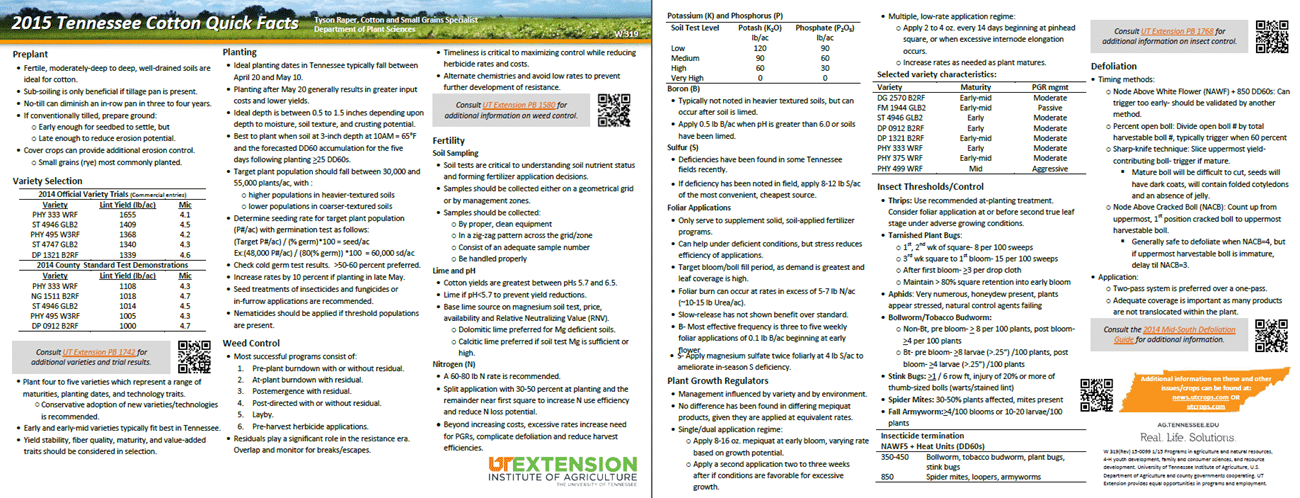The deadline for the Farm Bill Base Reallocation and Yield Update is Friday, February 27, 2015. Producers and landowners who have not made this decision at their Farm Service Agency (FSA) must at least get on an register or list at their FSA office. You would then schedule an appointment to come in and take care of this part of the farm bill. Contact your FSA office for more information and to get on the list. Failure to do so will result in no choice on base reallocation or yield update.
Category Archives: Farm Management
Ag borrowers who will struggle, part 2 by David Kohl
Continuation of Dr. David Kohl’s article in Corn & Soybean Digest
Recently I was a presenter at the National Agriculture Bankers Conference in Omaha, NE. For 37 years, this has been an annual stop during my Road Warrior travels. This year’s conference had over 750 agriculture bankers and lenders in attendance; the largest event in the past 20 years. Continue reading at Corn & Soybean Digest.
Ag borrowers who will struggle, part 1 by David Kohl
Check out this article in Corn & Soybean Digest by Dr. David Kohl
I recently addressed the American Bankers Association National Agriculture Bankers Conference in Omaha, Nebraska for the 37th consecutive year. I tell people I started giving speeches at this convention when I was 10 years of age, but no one believes me! This Super Bowl of education and learning over four days leaves attendees chock-full of information and ideas. In many sessions, discussion ensued concerning the borrowers who were going to struggle in the coming years as agriculture economics transitions. Three specific groups to watch are those businesses that utilized too much of their profits and working capital to purchase land, those who acquired machinery to reduce income taxes and those with high debt levels. Continue reading at Corn & Soybean Digest.
2015 TN Cotton Quick Facts
 With snow in the forecast, I hope you find some warmth in our hot-off-the-press 2015 Tennessee Cotton Quick Facts Publication (W 319) which is now available online. New this year are digital hyperlinks to all full-length UTIA publications. Simply click on the grey boxes or related QR codes describing the publication in which you are interested and your browser will do the rest. Keep losing your guide or tired of carrying paper guides around? Open this document with the reader on your mobile device (if Apple, your iBooks app) to have a digital copy at your fingertips at all times. Hyperlinks will still work!
With snow in the forecast, I hope you find some warmth in our hot-off-the-press 2015 Tennessee Cotton Quick Facts Publication (W 319) which is now available online. New this year are digital hyperlinks to all full-length UTIA publications. Simply click on the grey boxes or related QR codes describing the publication in which you are interested and your browser will do the rest. Keep losing your guide or tired of carrying paper guides around? Open this document with the reader on your mobile device (if Apple, your iBooks app) to have a digital copy at your fingertips at all times. Hyperlinks will still work!
Comments on February 10 USDA Report and Profitability Update
U.S. feed grain ending stocks for 2014/15 are projected lower with reductions for corn, sorghum, and barley. Corn accounts for most of the reduction with projected use in ethanol production raised 75 million bushels on higher forecast 2015 gasoline consumption by the Energy Information Administration. Continue reading at USDA S & D Report Comments and Profitability Update.
Tennessee farmers saw high yields in 2014, but what about profits?
Now that we have the final yields for 2014 and a somewhat guess on average market prices, how did producers in Tennessee do in 2014? The Jan. 12 USDA Crop Production Annual Summary confirmed 2014 was a big crop for grains in Tennessee. Continue reading at Southeast Farm Press.
Comments on January 12th USDA report
Corn
U.S. feed grain supplies for 2014/15 are projected lower with a reduction in corn production more than offsetting an increase in sorghum. Harvested area for corn is increased slightly, but the national average yield is estimated 2.4 bushel per acre lower at 171.0 bushels per acre. Corn production is estimated 191 million bushels lower. Yield and production, however, both remain records. Continue reading at Comments on January 12 USDA report including Profitability Update.
2014 University of Tennessee XtendFlex™ Cotton Variety Trials
Tyson Raper and Larry Steckel
During the 2014 growing season, the University of Tennessee Cotton Variety Testing program was given an opportunity to evaluate several of the new Monsanto Bollgard II® XtendFlex™ cotton varieties. Given the recent de-regulation of this trait, many may find this data of interest. (De-regulation of dicamba applications to these varieties is still pending.) Continue reading

